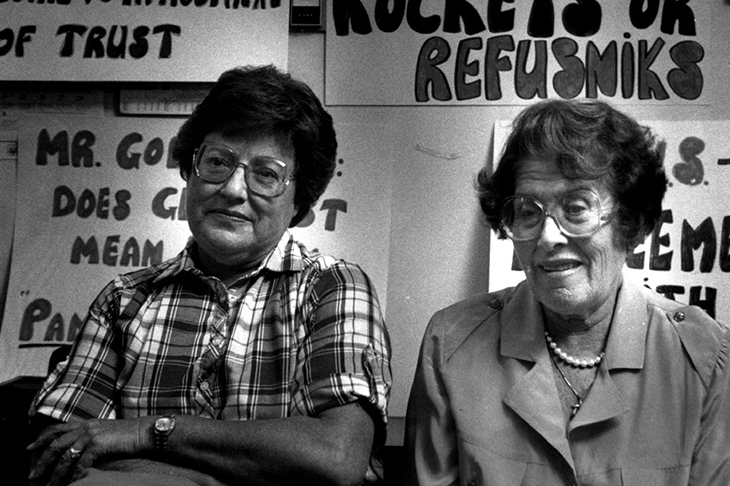‘Vaccine refusenik’ is the latest catchphrase used to disparage anyone unwilling — for whatever reason — to roll up their sleeve for a COVID shot. Few are aware, however, that the word ‘refusenik’ could hardly be less fitting.
The term ‘refusenik’ (the anglicized version of the Russian otkaznik), which spread across the globe in the early 1980s, was used to describe the hundreds of thousands of Soviet Jews (and also other minorities such as ethnic Germans of the Volga region) who were refused permission to emigrate.
These Soviet Jews, most of whom sought to build a new life for themselves in Israel, were persecuted as dissidents and traitors. In the regime’s view, the audacity of wanting to leave Utopia could not be left unpunished: thousands were fired from their jobs and their exit visas were made contingent on paying enormous bills for the social services they had received in the Soviet Union. Even if they could scrape together enough to settle the astronomical bills, there was still no guarantee they would be granted a visa. In the meantime, they and their families had to live as social outcasts tracked by the KGB.
Perhaps the most famous refusenik, the scientist and cybernetics pioneer Alexander Lerner, was branded ‘the leader of a nest of spies’ in 1977 by the government newspaper Izvestiya. If the risk of an international outcry prevented the regime from imprisoning Lerner, it did not stop it from arresting his friends and dismissing him from his post. He was permitted to emigrate to Israel only in 1988, 20 years after he had first applied.
Although the refuseniks’ desire to leave was viewed as an act of treason, many simply wanted to escape anti-Semitism. The creation of the state of Israel in 1948 led the Stalinist authorities to view Soviet Jews as a potential fifth column, prompting a vicious crackdown. Although Khrushchev’s ‘thaw’ after Stalin’s death in 1953 dampened this state-sponsored persecution, anti-Semitism had been legitimized across Soviet society.
In this hostile environment, it was dangerous for Soviet Jews to express their culture, to speak Yiddish or to reveal their ethnic background. As a popular joke at the time summed up, for the refuseniks, it felt like there was simply no way out:
A Jew submits his papers for an exit visa. He is asked why he wants to leave.
‘I have two reasons. My neighbor in the communal apartment keeps telling me that as soon as Soviet power collapses he’s going to kill me and my family.’
‘But you know very well that Soviet power will never collapse.’
‘That’s my other reason.’
It is a grim irony that a word which described ethnic minorities persecuted by the state is now used as a derogatory term for individuals in a free society who assert themselves against the mainstream. The balance of power implied by the word has been turned on its head: the original refuseniks were not the refusers, but the refused.
Vaccine politics aside, to use this term as a brush with which to tar large groups of people is not only to misunderstand its original meaning, but to forget a chapter of history which continues to carry profound emotional resonance for the hundreds of thousands who were persecuted at the hands of the Soviet regime.
This article was originally published in The Spectator’s UK magazine. Subscribe to the World edition here.


















